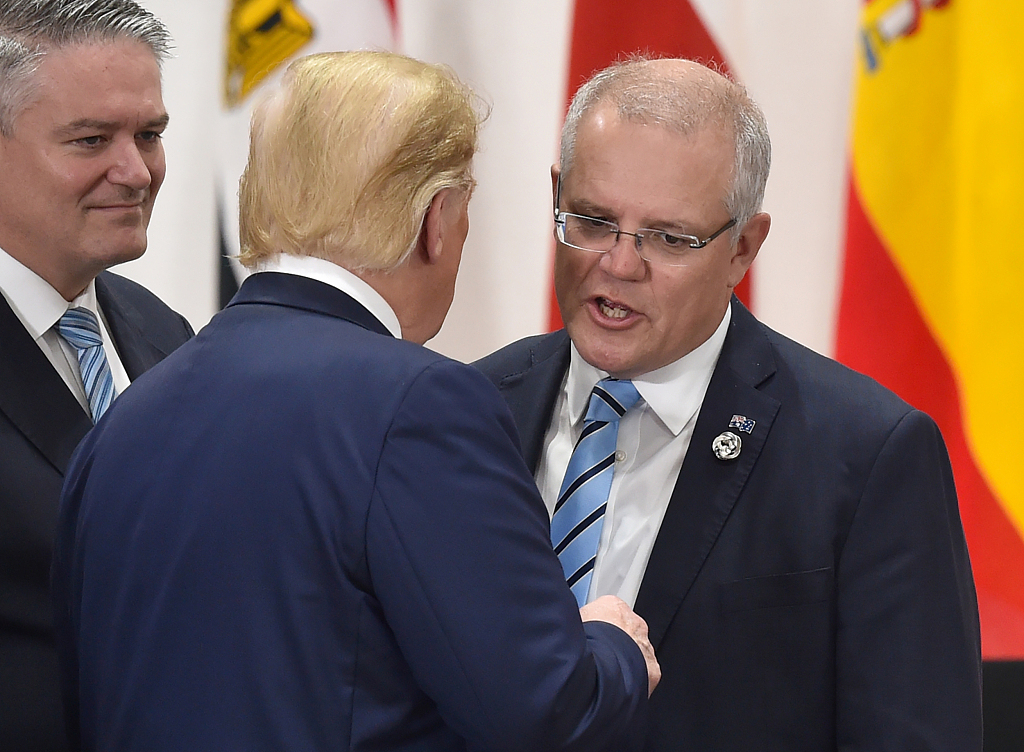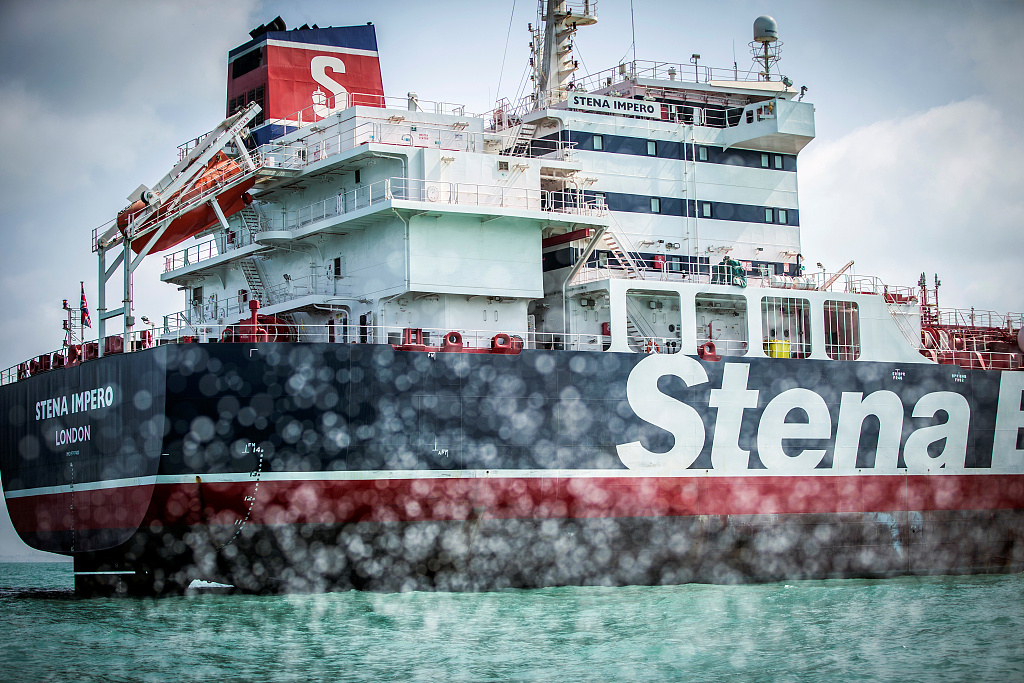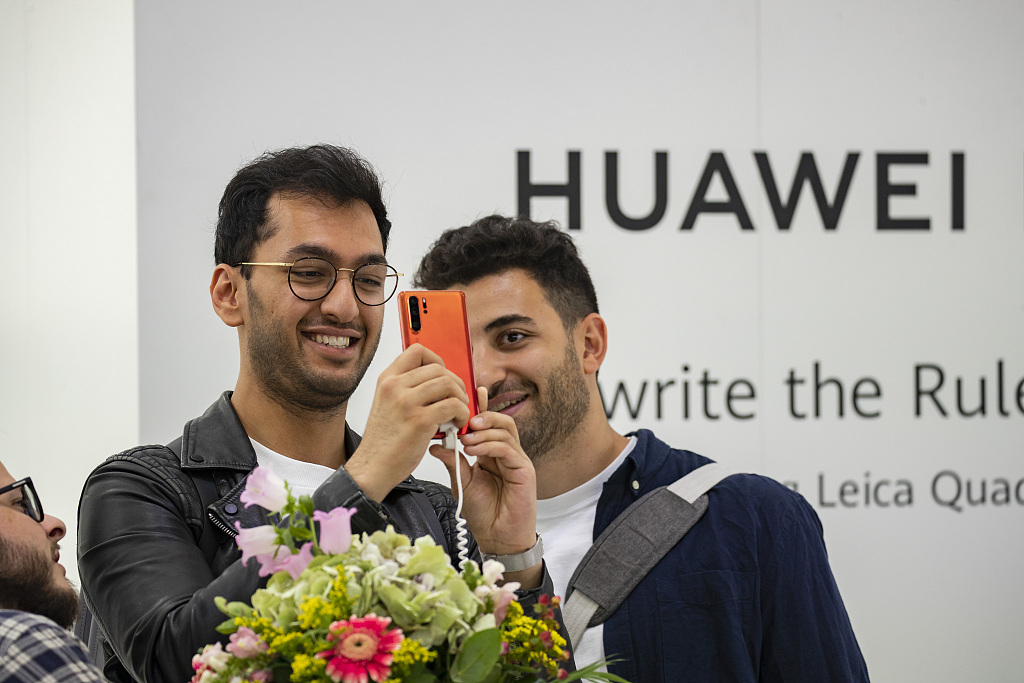U.S. President Donald Trump will invite his "bestie," Australian Prime Minister Scott Morrison, for a state dinner at the White House on September 20. This is Trump's second state dinner since taking office.
The pair is expected to discuss U.S.-Iran tensions as Australia has joined U.S.-led efforts to protect ships in the Strait of Hormuz. China might come up because Australia has been in an awkward dance between Beijing and Washington over their trade conflict.

Australian Prime Minister Scott Morrison (R) chats with U.S. President Donald Trump (C) prior to the session at the G20 Summit in Osaka, Japan, June 29, 2019. /VCG Photo
Australian Prime Minister Scott Morrison (R) chats with U.S. President Donald Trump (C) prior to the session at the G20 Summit in Osaka, Japan, June 29, 2019. /VCG Photo
Is Morrison dragging Australia into Trump's Iran conflict?
Ahead of his visit, Morrison announced Australia will join the U.S. in a security mission to protect merchant vessels traveling through key Middle East waterways after Iran seized a British-flagged vessel.
As a staunch ally of the U.S., Australia would send a P-8A Poseidon surveillance plane to the Middle East for one month before the end of 2019, while an Australian frigate would be deployed for six months from January.
Kamal Dehghani Firouzabadi, the deputy chair of Iran's foreign relations committee, was stunned by Morrison's statement.
"It was very surprising for me to hear that Australia joined the coalition, because the United States is making repeated mistakes, including pulling out of the nuclear agreement," Firouzabadi told the media.

Stena Impero, a British-flagged vessel owned by Stena Bulk, is seen at an undisclosed place off the coast of Bandar Abbas, Iran, August 22, 2019. /VCG Photo
Stena Impero, a British-flagged vessel owned by Stena Bulk, is seen at an undisclosed place off the coast of Bandar Abbas, Iran, August 22, 2019. /VCG Photo
Responding to Australia's move, the deputy chair thought it was "unnecessary" as Iran already protected oil tankers in the region.
The "fantastic PM Morrison" and "unconventional" U.S. president share views on some issues, while Allan Behm, a former Australian defense official, suggested Morrison take "a long-handled spoon" to Washington.
"Both are foreign policy novices. Morrison has to be very careful he doesn't allow the developing personal relationship with Trump to draw him into decisions he might later regret – especially in relation to Iran," he said.
Australia's awkward dance between Beijing and Washington
Although "there is no deeper friendship than that which exists between Australia and the U.S." in Morrison's eyes, the leader also showed concern about the impact of the trade dispute between the first two largest economies in the world.

Visitors test the smartphone Huawei P30 at a Huawei booth during the international electronics and innovation fair IFA in Berlin, September 10, 2019. /VCG Photo
Visitors test the smartphone Huawei P30 at a Huawei booth during the international electronics and innovation fair IFA in Berlin, September 10, 2019. /VCG Photo
Having been the "yes-man" to Washington for years, which became evident when it was banning Chinese telecommunications giant Huawei from building 5G networks in the country, Australia held back this time.
Asked if he backed Trump's approach towards China, the prime minister said at the G7 summit in France that he wants to see an end to the dispute.
The reason behind his hesitation is clear as China's appetite for Australia's agricultural, forest and fish products are particularly strong, and foreign direct investment from China is also very strong, said Simon Birmingham, Australia's minister for trade, tourism and investment.
Echoing the minister, John Brumby, former premier of the Australian State of Victoria, said, "Australian governments will need to understand China as a huge and diverse country, rightly proud of its growth and of lifting hundreds of millions from poverty. Australian businesses will need to develop a deeper understanding of Chinese markets, and especially of the Chinese digital environment."